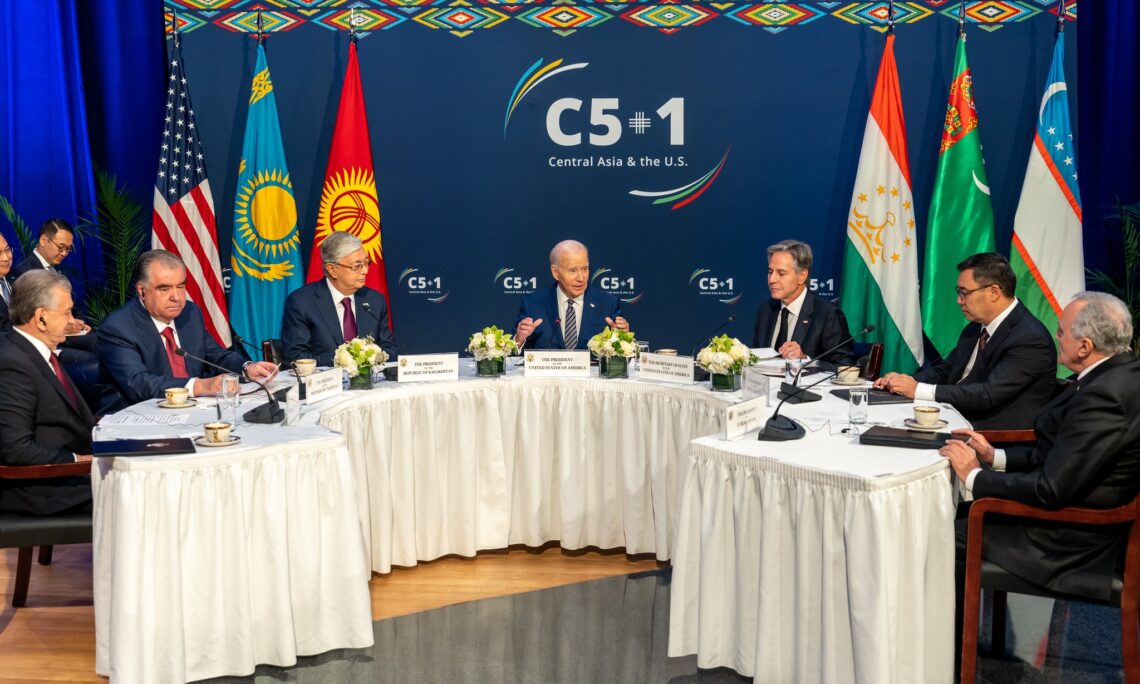American Elections and Central Asia
Kazakhstan, Uzbekistan, Kyrgyzstan, Tajikistan and Turkemnistan are also awaiting the outcome of the confrontation between Donald Trump and Kamala Harris with interest, considering the disruptive effects of world events on the region's prospects. Also hanging in the balance is the future of the ‘5+1’ contact format through which the White House has tried to gain footholds in the former Soviet area in recent years.
Astana (AsiaNews) - With only a few days to go before the election of the US President, in the contest between Donald Trump and Kamala Harris, the whole world is wondering what consequences the choice of the new White House tenant to replace the weakened Joe Biden will have on politics, economics, ecology and the solution to the ongoing wars in the world, especially in Ukraine and Israel.
Central Asian countries also await the outcome of the consultation with great interest, considering the disruptive effects of world events on the region's future prospects.
In his previous term, Trump had already had the opportunity to interact with Central Asian leaders, while his opponent does not have this experience. The point of reference remains the ‘5+1’ contact format, which has been held since the early 2000s, when then-President George Bush began meeting with the heads of state of these countries (excluding Turkmenistan, which joined later) to assess the prospects still conditioned by the Soviet legacy, especially in Afghanistan, and the conflicts that arose after the 2001 attacks on the Twin Towers in New York.
The most influential leader, the Kazakh President Nursultan Nazarbaev, met no less than five American presidents during his long period in power, and it was Barack Obama who formalised the format that has since spread to other international levels.
Nazarbaev's successor, Kasym-Žomart Tokaev, made two official visits to the US, discussing various possibilities for cooperation in the fields of investment, trade and even artificial intelligence, concluding a number of important agreements, so much so that Washington became Astana's second largest economic partner after Moscow.
In 2023, the five Central Asian presidents met with President Biden, addressing the sensitive issue of the effects of sanctions against Russia and attempts to circumvent them through Central Asia. After the meeting, the White House issued a communiqué stating that energy security issues in the region were mainly discussed, without touching on human rights issues, as many would like to see today.
However, Biden called the meeting a ‘historic moment’ and called for it to be more frequent and constructive.
Eurasia specialist Catherine Putz, editor of the American magazine The Diplomat, observes that ‘neither Harris nor Trump have hinted at the possibility of continuing the 5+1 summits’, and believes that the Democratic candidate seems unwilling to renew them, despite the one that took place with Biden, whose deputy she still is, due to her greater sensitivity to the issue of human rights, which Central Asian presidents are very unwilling to address outside of their own context.
Kyrgyz scholar Ališer Khamidov also considers the platform ineffective, and does not believe it will be developed further, whoever the new tenant of the White House is after 5 November.
Russia does not intend to leave these lands to American and Western influence, and almost every month senior officials from Moscow visit these parts, starting with President Vladimir Putin himself and Foreign Minister Sergei Lavrov.
The presidents of the Central Asian countries themselves often fly to Moscow, maintaining many personal relationships with Putin and the Russians, and remaining linked to the Russian space at various levels, including the institutional levels of the Eurasian Economic Union and the Csto military alliance.
The Americans realise that they cannot compete on this level with the Russians, and according to Khamidov ‘bilateral meetings with each partner in the region could be more fruitful’.
Obviously, everyone is waiting to know the positions of Harris and Trump with respect to the war in Ukraine; the former has stated that she is ready to support Kiev ‘in whatever is necessary to counter Russian aggression’, without saying too much, while Trump has been repeating for a long time that if he is elected he will ‘end the war in 24 hours’, bringing the two sides in the conflict to the negotiating table.
Photo: White House







.png)










